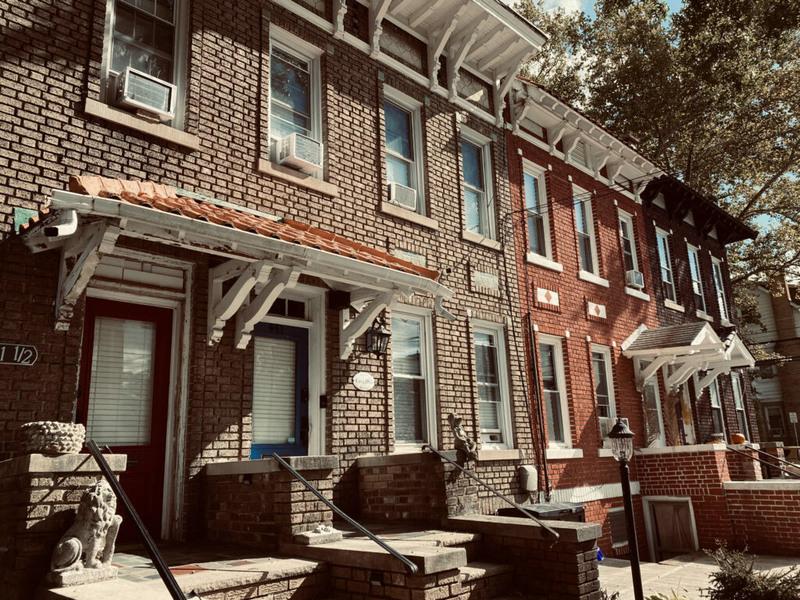Watchdog sues Newark, Jersey City landlords over housing discrimination claims

A housing watchdog group has sued 26 landlords and brokers in Newark and Jersey City, alleging they illegally refuse to lease apartments to people who use government-subsidized vouchers to pay rent.
The Housing Rights Initiative, a New York City-based nonprofit, filed a complaint in state Superior Court Wednesday asking a judge to declare the landlords, brokers, and companies that employ them in violation of New Jersey’s Law Against Discrimination. That law prohibits discrimination based on source of income.
The group began investigating housing voucher discrimination in the New York metropolitan area in 2017 after receiving complaints from prospective renters, the group’s founder and executive director Aaron Carr told the New Jersey Monitor.
“Civil rights testers” posing as apartment hunters spent months calling area brokers and landlords to ask about renting properties, waiting until the end of the call to ask about using the federally funded vouchers to do so, Carr said. By law, all rental properties in New Jersey, with few exceptions, must be accessible to voucher holders.
But the defendants named in the complaint all rejected the undercover advocates, offering excuses including that they had already “met the cap for vouchers,” don’t accept vouchers “because it is a lot of paperwork,” or that the property owner was “looking for a traditional renter,” the complaint says.
“These landlords, these brokers, and this real estate industry actually, undeniably, and unequivocally broke the law,” Carr said.
Carr’s group has a similar lawsuit underway in New York and also filed a federal lawsuit in 2021.
More than 2 million families receive the vouchers under a U.S. Department of Housing and Urban Development program, known as Section 8, that’s intended to remove barriers preventing low-income families from renting outside areas of concentrated poverty.
In New Jersey, the feds fund housing vouchers for 78,799 households, department spokeswoman Olga Alvarez said. The state Department of Community Affairs administers more than 25,000 of them, covering over $265 million in rental payments, while local housing authorities distribute the rest.
Under the program, the voucher holder generally pays 30% of their income on rent and the government pays the rest, up to a maximum.
But so many landlords reject these applicants that some vouchers never get spent, preventing families from moving to integrated neighborhoods with better schools, transportation, and other amenities, according to the complaint.
That worsens housing segregation by trapping low-income residents in the homeless shelters, substandard housing, and high-poverty neighborhoods they’re trying to leave, the complaint says.
That has a ripple effect throughout society, Carr said.
“It’s important for the public to understand that — whatever you think about these programs — this impacts you as a taxpayer,” he said. “When families are unable to use their housing vouchers due to unlawful discrimination, homeless shelter costs increase, health care costs increase, court costs increase, law enforcement costs increase, foster care costs increase, unemployment costs increase, all costs increase.”
Voucher discrimination has been such a rampant — but unchecked — offense that many landlords in New Jersey blithely reject such applicants without fear of punishment, according to a 2021 investigation by the Asbury Park Press. A 2018 study by the Urban Institute found that 31% of landlords in Newark refused to accept housing vouchers.
The antidote is “robust and systematic housing enforcement,” Carr said.
“Housing discrimination is rarely an isolated incident,” he said. “It’s part of an industrywide problem. And industrywide problems require industrywide solutions.”
The state Attorney General Office’s civil rights division oversees discrimination cases and is tasked with enforcement. Carr said his group is “in very close contact with them.”
That office refused to say whether it will act in any way against the landlords identified as law-breakers by Carr’s group.
Tara Oliver, an office spokeswoman, said New Jersey’s laws provide strong protections against housing discrimination.
“Undermining lower-income New Jerseyans’ ability to secure adequate housing is intolerable,” Oliver said in an email.
The office declined to answer questions about how many housing discrimination complaints the division receives, how many result in prosecution and penalties, and whether it will test for compliance to discourage discrimination, as the Housing Rights Initiative did with its investigation.
The division has acted at least once this year on the issue. It announced in February that eight landlords in Atlantic, Bergen, Essex, Hunterdon, Somerset, Sussex, and Union counties had illegally rejected prospective renters who planned to use vouchers to pay rent.
Two of those cases resulted in consent decrees that required the housing providers to comply with the law, receive anti-discrimination training, and pay the division and the renters to resolve claims.
Carr said his group filed their lawsuit with several goals in mind.
They hope a judge will require landlords to set aside a certain number of units for voucher holders and report to his group how many voucher holders apply for apartments — and whether they were accepted, Carr said. They also hope the civil rights division or other state policymakers will establish an “enforcement monitor” that routinely tests landlords and other real estate professionals to ensure continued compliance with the law.
Above all, Carr added, “we’re trying to get real estate companies to abandon their discriminatory practices and to follow the damn law.”








